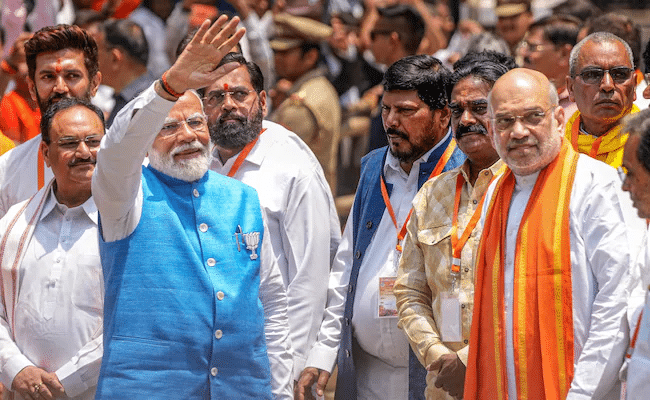Exit Polls Indicate Ruling Party May Surrender Majority in Upcoming Elections

Exit polls from Japan’s recent upper house election indicate that Prime Minister Shigeru Ishiba’s ruling coalition is likely to lose its majority, intensifying political pressure on the leader. Voter turnout on Sunday reflected widespread public dissatisfaction, driven by rising prices and concerns over potential U.S. tariffs. If the coalition fails to secure at least 50 of the 248 seats, it could significantly diminish its policymaking power and potentially lead to Ishiba’s resignation, less than a year after taking office.
Election Results and Political Implications
The upper house election, which saw half of the chamber’s seats contested, is critical for the ruling coalition, comprising Ishiba’s Liberal Democratic Party (LDP) and its junior partner Komeito. Exit polls from NHK suggest that the coalition may secure between 32 and 51 seats, falling short of the 50 needed to maintain control. This potential loss follows a previous setback in the more powerful lower house, where the coalition also lost its majority. A defeat in the upper house would mark the worst performance for the coalition since its formation in 1999, raising questions about Ishiba’s leadership and the future of his administration.
Political analysts note that the last three LDP leaders who faced similar electoral losses in the upper house resigned within two months. Should Ishiba’s coalition fail to achieve a satisfactory outcome, it could trigger a leadership contest within the party, opening the door for other prominent figures such as Sanae Takaichi, Takayuki Kobayashi, and Shinjiro Koizumi to emerge as potential successors.
Public Sentiment and Economic Concerns
The anticipated electoral outcome reflects a growing frustration among voters regarding Ishiba’s handling of economic challenges, including inflation and a cost-of-living crisis. Many citizens are particularly concerned about rising prices, especially for staple goods like rice. The LDP has also faced scrutiny due to a series of political scandals that have plagued the party in recent years. As the government grapples with these issues, public confidence in Ishiba’s leadership has waned, complicating the political landscape as Japan navigates ongoing trade negotiations with the United States.
The ruling coalition’s struggles are further compounded by the rise of the Sanseito party, which has attracted conservative voters with its “Japanese First” and anti-immigration rhetoric. This fringe party gained traction during the COVID-19 pandemic, leveraging social media to spread its message. As immigration and foreign resident policies became focal points in the election, Sanseito is projected to win around seven seats, reflecting a shift in voter sentiment.
Challenges Ahead for the Ruling Coalition
The potential loss of seats for the ruling coalition highlights the shifting dynamics within Japanese politics. The LDP has historically maintained a strong grip on power, but the current electoral climate suggests that voters are increasingly seeking alternatives. The Sanseito party’s rise indicates a growing appetite for nativist policies, which resonate with segments of the population feeling threatened by rising living costs and the influx of foreign residents.
In response to these challenges, Ishiba recently established a task force aimed at addressing issues related to foreign nationals, including immigration and social insurance concerns. This move underscores the government’s attempt to regain public trust and address the economic anxieties that have fueled discontent among voters. However, the effectiveness of these measures remains to be seen, especially as the political landscape continues to evolve.
As Japan stands at a crossroads, the outcome of this election could have lasting implications for the nation’s governance and its approach to pressing economic and social issues. The ruling coalition’s ability to navigate these challenges will be crucial in determining its future stability and influence in the coming months.
Observer Voice is the one stop site for National, International news, Sports, Editor’s Choice, Art/culture contents, Quotes and much more. We also cover historical contents. Historical contents includes World History, Indian History, and what happened today. The website also covers Entertainment across the India and World.

